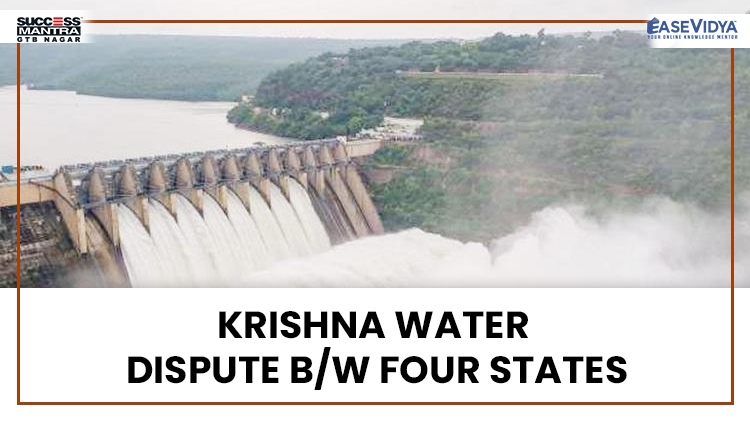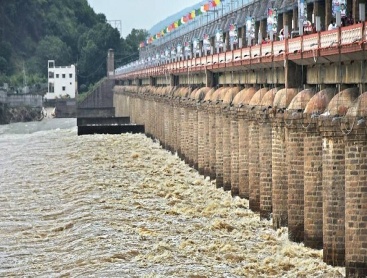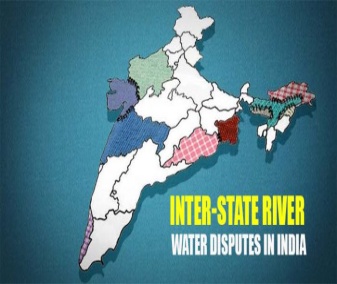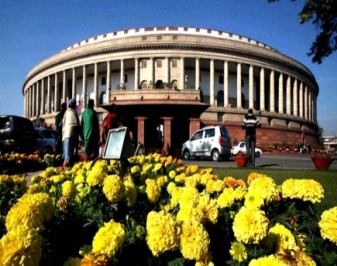
KRISHNA WATER DISPUTE BETWEEN FOUR STATES
KRISHNA WATER DISPUTE B/W FOUR STATES
Recently, two judges of the Supreme Court have recused themselves from hearing a matter related to the distribution of Krishna water dispute between Andhra Pradesh, Telangana, Maharashtra and Karnataka. They cited the reason that they did not want to be the target of partiality since the dispute is related to their home states.

Recusal of Judges
It is the act of abstaining from participation in an official action such as a legal proceeding due to a conflict of interest of the presiding court official or administrative officer. When there is a conflict of interest, a judge can withdraw from hearing a case to prevent creating a perception that he carried a bias while deciding the case. There are no formal rules governing recusals, although several SC judgments have dealt with the issue. In Ranjit Thakur v Union of India (1987), the SC held that the test of the likelihood of bias is the reasonableness of the apprehension in the mind of the party. The judge needs to look at the mind of the party before him, and decide that he is biased or not.
Current Affairs Notes By Success Mantra Coaching Institute GTB Nagar Delhi CLICK HERE
ABOUT THE DISPUTE
In 2021 Andhra Pradesh alleged that the Telangana government had deprived it of its legitimate share of water for drinking and irrigation purposes in an “unconstitutional and illegal” manner. The water of the Srisailam reservoir — which is the main storage for river water between the two states — has turned out to be a major warring point. Andhra Pradesh protested against Telangana’s use of the Srisailam reservoir water for power generation. The Srisailam reservoir is constructed across the Krishna River in Andhra Pradesh. It is located in the Nallamala hills. It further contended that Telangana was refusing to follow decisions taken in the apex council constituted under the Andhra Pradesh Reorganisation Act, 2014, directions of Krishna River Management Board (KRMB) constituted under this Act and directions of the Centre.
BACKGROUND OF THE ISSUE
- Krishna Water Disputes Tribunal: In 1969, the Krishna Water Disputes Tribunal (KWDT) was set up under the Inter-State River Water Dispute Act, 1956, and presented its report in 1973. At the same time, it was stipulated that the KWDT order may be reviewed or revised by a competent authority or tribunal any time after 31st May, 2000.
- Second KWDT: The second KWDT was instituted in 2004. It delivered its report in 2010, which made allocations of the Krishna water at 65 % dependability and for surplus flows as follows: 81 TMC for Maharashtra, 177 TMC for Karnataka, and 190 TMC for Andhra Pradesh.
- After the KWDT’s 2010 report: Andhra Pradesh challenged it through a Special Leave Petition before the Supreme Court in 2011. In 2013, the KWDT issued a ‘further report’, which was again challenged by Andhra Pradesh in the Supreme Court in 2014.

CREATION OF TELANGANA
After the creation of Telangana, Andhra Pradesh has asked that Telangana be included as a separate party at the KWDT and that the allocation of Krishna waters be reworked among four states, instead of three. It is relying on Section 89 of The Andhra Pradesh State Reorganisation Act, 2014. For the purposes of this section, it is clarified that the project-specific awards already made by the Tribunal on or before the appointed day shall be binding on the successor States.
CONSTITUTIONAL PROVISIONS RELATED TO THE ISSUE
Article 262 of the Constitution provides for the adjudication of inter-state water disputes. Under this, Parliament may by law provide for the adjudication of any dispute or complaint with respect to the use, distribution and control of waters of any inter-state river and river valley. The Parliament has enacted the two laws, the River Boards Act (1956) and the Inter-State Water Disputes Act (1956). The River Boards Act provides for the establishment of river boards by the Central government for the regulation and development of Inter-state River and river valleys. The Inter-State Water Disputes Act empowers the Central government to set up an ad hoc tribunal for the adjudication of a dispute between two or more states in relation to the waters of an inter-state river or river valley. Neither the Supreme Court nor any other court is to have jurisdiction in respect of any water dispute which may be referred to such a tribunal under this Act.

Inter-State River Water Disputes (Amendment) Bill, 2019
The Bill tries to reduce the time it takes to constitute a tribunal i.e. it creates a permanent infrastructure. Also, like most commercial disputes, a pre-litigation dispute resolution process, which is attempted for a period of 18 months with the central government playing the role of arbitrator, is present. And if the issue is not resolved within that period, it gets referred to the tribunal as a dispute. The delay in the adjudication process is because of the appointment of the members i.e. judges of the Supreme Court and the High Court and the assessors. The Bill seeks to constitute a permanent tribunal, so there will be benches and one bench would be able to look at more than one issue/dispute. Hence, the process will be expedited. In the proposed Bill, some timelines have also been fixed. The Dispute Resolution Committee (DRC) will take one year extendable by six months to one and a half years. The main report will be prepared in two months, that means the entire deliberations and argumentation and all those will take two years extendable by one year, so a total of three years. And the clarification that is required has to be decided within one year extendable by six months.
KRISHNA RIVER
- Source: It originates near Mahabaleshwar (Satara) in Maharashtra. It is the second biggest river in peninsular India after the Godavari River.
- Drainage: It runs from four states Maharashtra (303 km), North Karnataka (480 km) and the rest of its 1300 km journey in Telangana and Andhra Pradesh before it empties into the Bay of Bengal.
- Tributaries: Tungabhadra, Mallaprabha, Koyna, Bhima, Ghataprabha, Yerla, Warna, Dindi, Musi and Dudhganga.
CONCLUSION
The water disputes can be solved or balanced only by having a permanent tribunal established with appellate jurisdiction of the Supreme Court established over the tribunal’s decision. The immediate target of any Constitutional Government should be amendment to Article 262 and amendment to Inter-State Water Disputes Act and its implementation at the equal note. It is time that we all should rethink our strategy about water management, not just within states, but at the national level keeping the water scenario in the next 30 years. The channels of communication need to be improved desperately, in order to gain a consensus. The mechanism must improve in a manner that the body created by the Centre must adequately represent the states to protect their interests.
PRAVAHINI Current Affairs Notes By Success Mantra Coaching Institute GTB Nagar Delhi CLICK HERE
TEST YOURSELF
Q.1 Recently, two judges of the Supreme Court have recused themselves from hearing a matter related to the distribution of Krishna water dispute. Which of the following States is not involved in the issue?
- Andhra Pradesh
- Kerala: ANSWER
- Maharashtra
- Karnataka
Q.2 In which of the following years, the Krishna Water Disputes Tribunal (KWDT) was set up under the Inter-State River Water Dispute Act?
- 1989
- 1956
- 1969: ANSWER
- 1990
Q.3 Which of the following states is not one of the party’s states of Godavari Water Dispute?
- Maharashtra
- Karnataka
- Tamil Nadu: ANSWER
- Odisha
Q.4 When was the Ravi & Beas Waters Tribunal constituted for verification of the quantum of usage of water claimed by Punjab, Haryana and Rajasthan?
- January, 1987
- April, 1986: ANSWER
- March, 1989
- November, 1990
Q.5 Which of the following statements is/are incorrect regarding the inter-state Dispute?
- Article 262 of the constitution empowers the state legislatures to make laws for the adjudication of inter-state water dispute: ANSWER
- The Inter-State Water Disputes Act 1956 was enacted to deal with inter-state water disputes.
- The Government of India can constitute a tribunal to hear the disputes concerning claims of water sharing.
- The members of tribunal are appointed by the Chief justices of India.












0 Comment